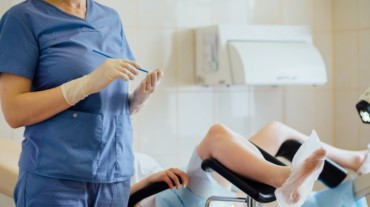Chat with ![]()

Chat with ![]()


Vaccination is a safe and effective way to protect yourself from human papillomavirus or HPV. According to Dr Niveditha Manokaran (also known as dr_nive_untaboos on Instagram), HPV vaccination goes hand in hand with cervical screening test/pap smear in the prevention of cervical cancer.
In her recent Instagram post, she has shared all about the cervical screening test, why one must go for it, and why routine testing is important. Without further ado, let’s get down to the details.
Check out the post now:
“A cervical screening test is a simple procedure to check the health of your cervix. The test involves a health professional taking a sample of cells from your cervix. The sample of cells is then checked in a laboratory for the presence of HPV,” adds Dr Manokaran.
Also, read: Can poor hygiene down there give you cervical cancer? Here’s the truth

It is a screening test to detect early cervical cancer. Strangely, HPV is common — 90% of the people are infected with at least one type of genital HPV in their lives. In fact, 90% of cervical cancers occur in women who have not been screened.
This is a question most women don’t have the answer to. Dr Manokaran breaks it down — she says it is important to get tested if you have a cervix, are aged between 25 and 74 or have been sexually active. She adds, “You need to have a cervical screening test every 5 years, even if you are no longer sexually active or have experienced menopause.”

“If you have a cervix, you should start cervical screening at the age of 25. Further, if you have had a pap smear before the age of 23, you would have been due for your next cervical screening test, once you have turned 25,” says Dr Manokaran.
Also, read: I survived cervical cancer: How a gynae coped with a life-changing diagnosis
Regardless of who you have sex with, if you have a cervix and have ever had sex, you need to have cervical screening test at least every 5 years.
Because of the advancement in research, the cervical screening test is more accurate and can identify cervical health issues earlier on. This means that the cervical screening test will catch what could eventually turn into cervical cancer one step earlier than the pap smear. For that reason, you don’t have to test as frequently.
“The HPV vaccine only protects against some types of HPV. There are several other types of HPV not covered by the vaccine. There is also the possibility that you have been exposed to HPV through sexual activity before you had the vaccine.
The best way to look after the health of your cervix is the combination of the HPV vaccine and regular cervical screening,” concludes Dr Manokaran.